Journal data
- ISSN: 2224-235X
- E-ISSN: 2304-2265
- Format: electronic / Open Access
- Frequency: semi-annual publication / early published
- Peer review system: double anonymized review
- Charges: no
"Correspondencias & análisis" is an electronic journal of an academic and investigative nature, published biannually, committed to the community in the area of Social Sciences, taking care of the publication processes to guarantee ethics in research and editorial processes. To this end, it ensures that intellectual property rights are respected and recognized in accordance with the law, and urges authors to follow good practices in the dissemination of their research, without distorting the results or violating copyright. thus preserving the image of the Journal and the trust of the scientific and academic community. The criteria of the editorial work are based on the postulates promulgated by:
And in the following statements and documents:
I. Publication ethics statement
The publication ethics declaration establishes the actions of each of those involved in the article publication process:
1. The author. Your responsibilities are:
1.1. The authorship of the article.
It covers the participants who have contributed and/or participated substantially in the published article, this is reflected in the order that the authors occupy in the manuscript. These assume responsibility for the contents of the research to be published. While the editorial process lasts, the manuscripts should not be sent to another journal. Likewise, they must submit the 03 mandatory formats along with the manuscript:
The main author must ensure that all co-authors have seen and approved the final version of the article, as well as agree to its presentation for publication. The inclusion of other authors, who have not made contributions to the research, is considered inappropriate and will not be allowed; Knowing it can have negative results such as: removing it from the list of authors or removing the article from publication. At any time during the article evaluation process, original documentation can be requested from any of the authors for editorial review. If for any reason a negligent or malpractice process is detected, it will mean a violation of publication ethics and will violate the originality and honesty of the article, which is specified in the next section (b. Originality and plagiarism).
The Journal pays special attention to the ethical standards of articles that contain subjects in their research that are part of vulnerable population sectors, such as children, women, people with different abilities, among others. The handling of these subjects in research must be respectful of their rights, their specific characteristics in society and the legal regulations that may exist depending on their nationality. Authors must be careful not to expose them to public judgment, much less mention their personal data that could lead to their identification by readers of the publications.
The rights to the final version of the article correspond to the journal to subsequently publish it and provide public access under the Licencia Creative Commons Atribución 4.0 Internacional (CC BY 4.0). These rights allow you to share, copy and redistribute the material in any medium or format and to adapt, remix, transform and build upon the material for any purpose, including commercially.
1.2. Originality and plagiarism.
Authors must clearly, transparently and accurately present the process of their original research work and the document must contain sufficient corresponding details of its development. Authors must ensure that they have written completely original works, and if they have used the study and/or words of others, these must be referred to and cited. Any type of data, texts, figures or ideas originated by the authors must be cited and referred to objectively in the article without expressing lies, falsification or manipulation of inappropriate data. All of the above can be considered a negligent process and malpractice.
Plagiarism in all its forms and fraudulent or intentionally inaccurate statements establish unethical conduct and are inadmissible and will indicate malpractice in the way the submitted article is conceived. Authors must guarantee the accuracy and authenticity of the data and information they provide. Any published article in which a negligent process is detected will be informed to the author or authors, leaving a corresponding note in the journal's records, and the article will be immediately removed from the publication. Authors are responsible for using appropriate wording in the article before submitting it.
The editorial committee verifies the originality of the published articles and has an anti-plagiarism policy that ensures that all research works are unpublished. In this sense, it uses the Turnitin software, which allows checking for inappropriate citations or plagiarism by comparing it with one of the largest academic databases in the world, in order to guarantee transparency in the information and the originality of all manuscripts. This obliges the author to examine his manuscript in detail, in order to avoid plagiarism and strengthen academic integrity. If a 20% similarity is identified (in the information contained in the submitted article) with another writing, previously published in this or another journal, the editorial committee must send a written communication to the author or authors and grant them a reasonable period of time. 20 calendar days, to respond to the situation and assume the respective legal responsibility, which would imply the non-publication of the text.
The authors cannot declare information obtained privately, in conversation, correspondence, or by any other means; Additionally, if the research has procedures that have any risks inherent to their use, the author must identify them in the manuscript, and a statement of informed consent that was obtained from the experimentation with human subjects will be presented.
Correspondencias & análisis is governed by the regulations of the Copyright Law, which is governed by Legislative Decree No. 822 of April 23, 1996, in order to safeguard the intellectual property of the authors of the manuscripts exposed to arbitration.
1.3. Multiple, redundant or concurrent publication. .
Authors must ensure that:
1.4. Disclosure and conflicts of interest.
Authors must indicate in detail in the manuscript if there is any type of conflict of interest to be submitted for evaluation. Conflicts of interest can be moral, economic, labor or research . Potential conflicts of interest should be made public at the earliest possible stage.
1.5. Errors in published works.
When an author discovers an error in a published article, it is his or her obligation to immediately notify the journal's editor, as well as cooperate to retract or correct the manuscript. If the editor receives from a third party that a published article contains an important error or observation, the editor will immediately notify the author, and the author will immediately resolve it.
1.6. Participation in the double-blind peer review process.
The author must agree to participate in the double-blind peer review process of their article, as well as to comply with the recommendations of the reviewers and members of the journal's editorial board. Refusal to comply with the recommendations may result in rejection of the submitted article. All authors must correct errors and retractions in the manuscript.
2. External reviewers.
The responsibilities of the reviewers are related to:
2.1. Norms of objectivity.
Reviewers, in addition to supporting the editor in making editorial decisions, must contribute to the authors in improving their manuscript. Reviews must be fair, and there can be no personal criticism. Reviewers must express their points of view objectively, clearly and honestly with supporting arguments; they must present evaluation reports clearly within the established deadline.
Reviewers will evaluate manuscripts based on their content without taking into account the ethnic origin, gender, sexual orientation, nationality, religious belief or political philosophy of the authors.
2.2. Disclosure and conflict of interest.
Reviewers cannot evaluate manuscripts in which they have conflicts of interest resulting from personal, competitive, or collaborative relationships or connections with any of the authors, companies, or institutions related to the manuscript.
2.3. Peer review and the responsibility of collaborators.
All articles will be evaluated under a double-blind peer review process, where at least two reviewers do not know each other, nor are they involved in the review of the manuscript, and will rule in this process. In turn, there can be no connection between them with respect to the manuscript under review, nor between the reviewers and the author. Confidentiality will be respected between the reviewers of the article, and between the reviewers and the author.
Reviewers must ensure that all information related to the contents of the submitted article is kept confidential, and must not be disclosed, commented on or discussed with other researchers.
All reviewers must be specialists in their research area to review an article. They should not use inappropriate or vulgar language in their report and should submit it in a timely manner. The reviewer must be objective and impartial when reviewing a manuscript.
Reviewers must communicate to the editor any information that may be a reason for rejecting the publication of a manuscript. Additionally, they must report any infringement and/or plagiarism by the author.
Reviewers must identify information that has not been cited by the authors and report any aspect resulting from their evaluation.
The reviewers will reach one of the following conclusions:
The report will be sent to the authors with the request for modifications to be made.
3. The associate editors and the main editor.
3.1 The associate Editors.
The editors' responsibilities are related to:
3.1.1. Norms of objectivity.
Associate editors must oversee a double-blind peer review process for all articles submitted for publication and avoid any potential conflict of interest between the author, publisher, and reviewers. They must ensure that all information related to the submitted articles is kept confidential before publishing.
They will take reasonable response measures when there are ethical complaints in relation to an article submitted to the journal. These measures will include contact with the author(s) of the manuscript, and following up on the respective complaint or claim made, but may also include communication with the competent research institutions, and if the complaint has effect, a publication of correction and/or retraction, or withdrawal of the article if it has already been published. Every reported act of unethical behavior in an article will be examined, even if this is some time after the article was published.
3.1.2. Publication decisions.
Associate editors are responsible for deciding which of the articles submitted to the journal should be published or rejected. They will evaluate the manuscripts according to their knowledge of the content of the article, without distinction of race, gender, sexual orientation, religious beliefs, ethnic origin, nationality, or the political philosophy of the authors and pay special attention to the development of the manuscripts on their structure. and the elements that are part of the article.
3.1.3. Disclosure and conflicts of interest.
Unpublished materials revealed in a manuscript submitted to the journal should not be used without the express consent of the author. Information obtained through peer review must be confidential.
Associate editors will decline to act on articles that may have conflicts of interest as a result of personal relationships or competitive, collaborative and/or other connections with authors, companies or institutions in relation to the manuscripts.
It is very important that associate editors exclude the identity of the author(s) from the manuscript before submitting said manuscript to the double-blind peer review process by external reviewers.
3.2 The main editor
Senior Editor Responsibilities are:
The lead editor will coordinate the work of all editors and has the authority to make the final decision on the acceptance and/or rejection of a submitted manuscript. This is done after reviewing the evaluation reports and consulting with the other members of the editorial board. The main editor must not have any conflict of interest with respect to any article under evaluation and must maintain the anonymity of the external reviewers, as well as that of the author during the review process.
It is very important that the main editor monitors the fulfillment of the responsibilities of the associate editors, and follows up when an error, negligent procedure or bad practice, among others, is detected, decides how much corrections and clarifications should be made. , retractions and/or apologies if necessary in any published article, in an open, clear and precise manner, taking into account, at all times, the evidence presented.
4. The publishing house.
Research Institute of the School of Communication Sciences of the San Martín de Porres University, located at Tomás Marsano Avenue No. 242, Surquillo. Lima Peru. Responsible editor: Mg. Alejandro Nuñez Alberca, as the publishing house of the magazine "Correspondencias & análisis", takes very seriously its duties of guardianship over all steps of editing and publications of the magazine, and recognizes its ethical responsibilities to guarantee adequate advertising in the magazine.
If useful and necessary, a comprehensive internal evaluation of the editing and publication processes would be put into practice in favor of the magazine's readers and collaborators. The publisher endorses and behaves in accordance with the content of this Statement of Ethics and Malpractice.
5. Payment of authors and reviewers.
The authors will not be asked for any type of payment related to the processes of sending, evaluating and publishing the articles in the regular editions of the journal, nor will the external reviewers receive any payment for carrying out the evaluation of the articles in double-blind peer review processes.
II. Poor Publication Practices Statement.
To everything previously stated, in aspect I, is added the importance of highlighting that the EDITORIAL TEAM of the journal (Editor in Chief and Associates) will provide primary attention to any negligent and/or malpractice procedure. If the above is discovered at any time after publication of the article in the journal, it will be removed from publication immediately for not being in accordance with the ethical principles of the journal. The above includes plagiarism, falsification (manipulation of research in terms of data, tables, images, ideas, existing conclusions, among others), fabrication of research (which constitute research data), duplicating editing, I any other negligence.
This Declaration of Publication Ethics and Bad Publication Practices for all authors and professionals involved in the act of publication in the journal “Correspondencias & análisis” is a description based on the Publication Ethics Committee available at https:// publicationethics .org/resources/guidelines-new/principles-transparency-and-best-practice-scholarly-publishing
This Declaration of Publication Ethics and Bad Publication Practices was approved by all professionals participating in the publication of this journal Correspondencias & análisis, and is made public, through this document, for the knowledge of all authors, readers, collaborators, reviewers and those interested in the journal's publication processes.
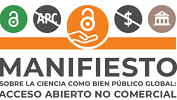
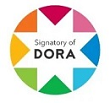 |
2.png) |
 |
 |
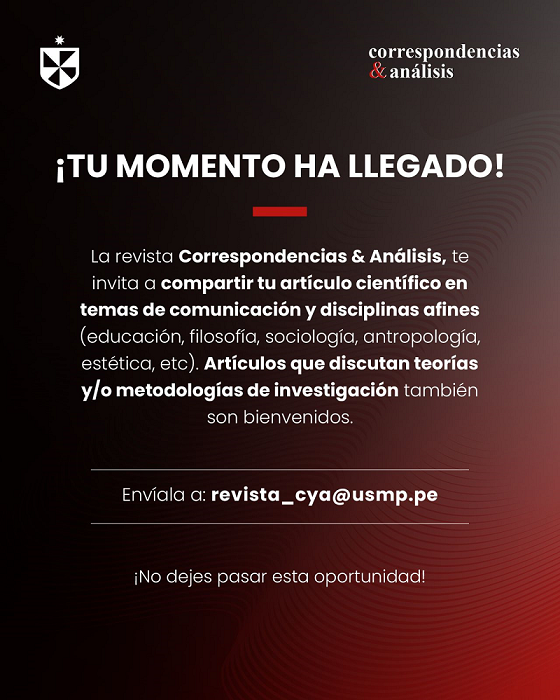
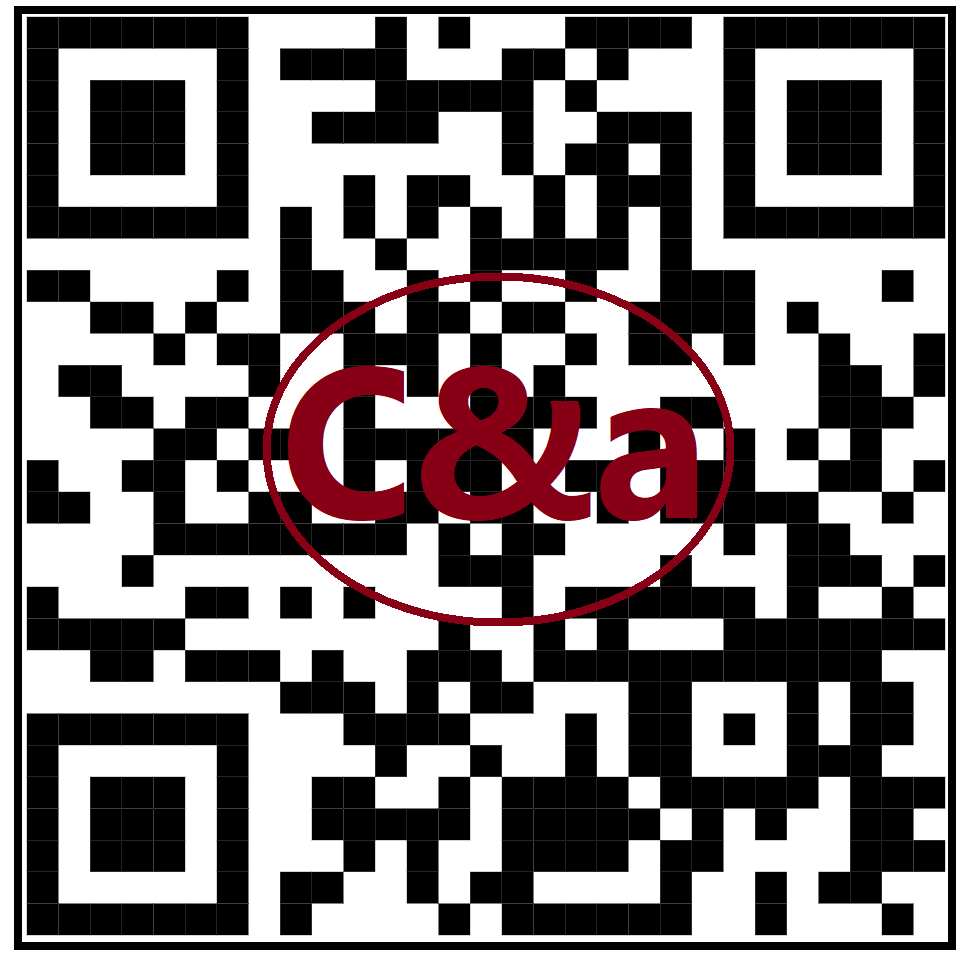
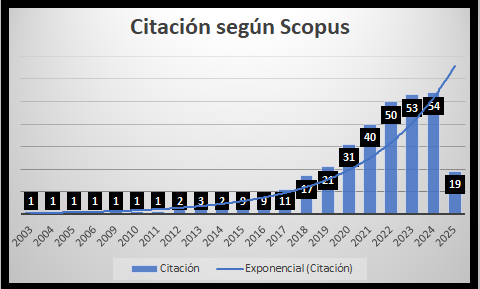
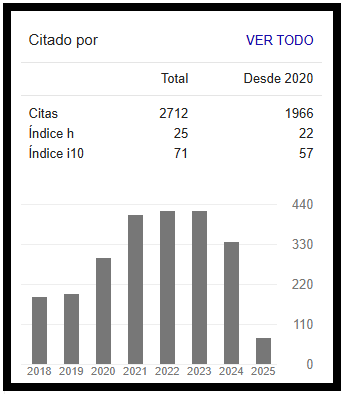
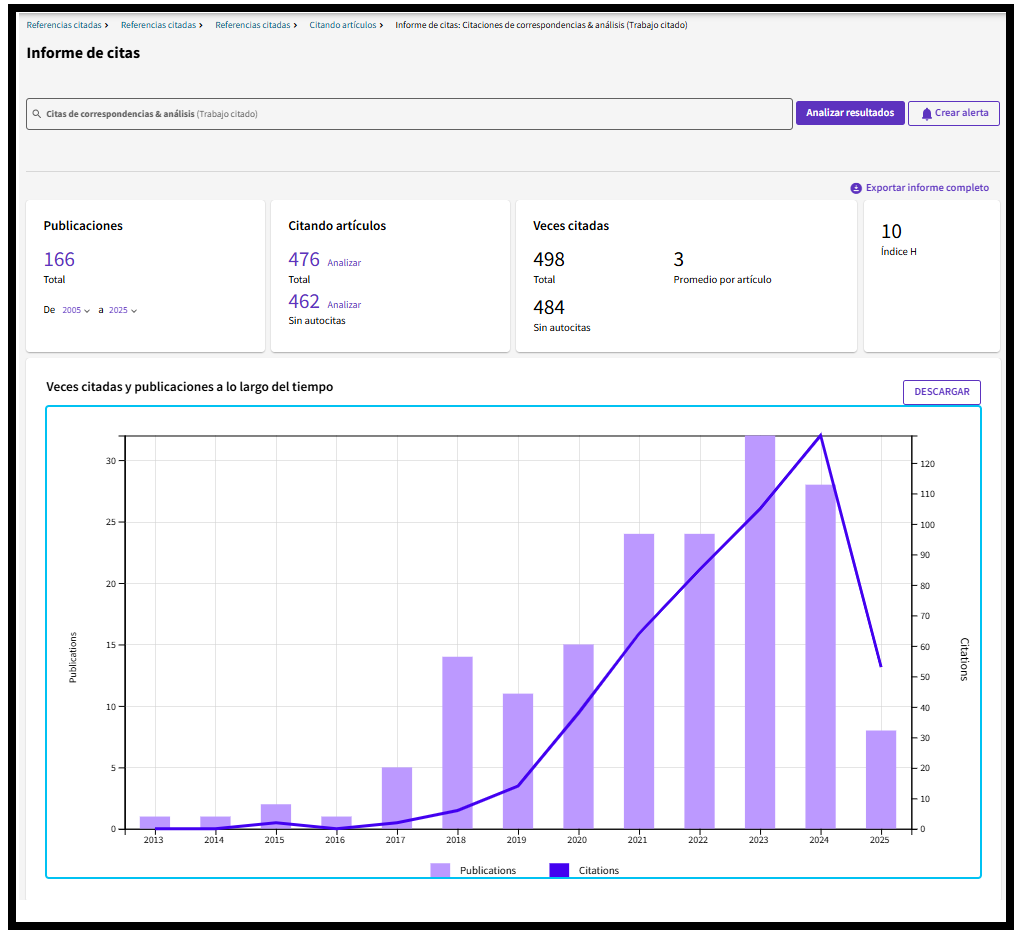
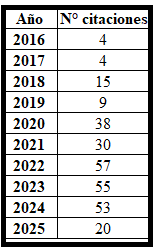
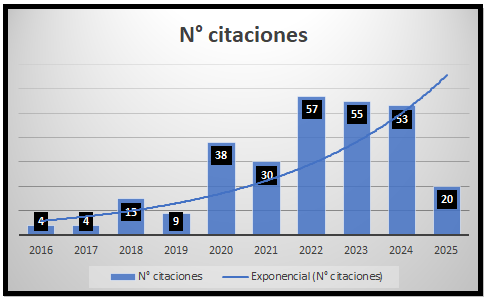
 Licencia Creative Commons Atribution 4.0 International (CC BY 4.0)
Licencia Creative Commons Atribution 4.0 International (CC BY 4.0)
Address: Av. Tomás Marsano Nº 242, Surquillo. Lima - Perú
Phone: (51-1) 513-6320 - Extension: 2190
E-mail: revista_cya@usmp.pe
Web: https://ojs.correspondenciasyanalisis.com/index.php/Journalcya
DOI: https://doi.org/10.24265/cian
ISSN: 2224-235X (Print)
2304-2265 (Online) 
